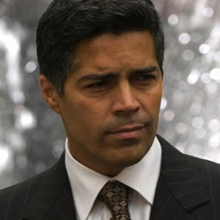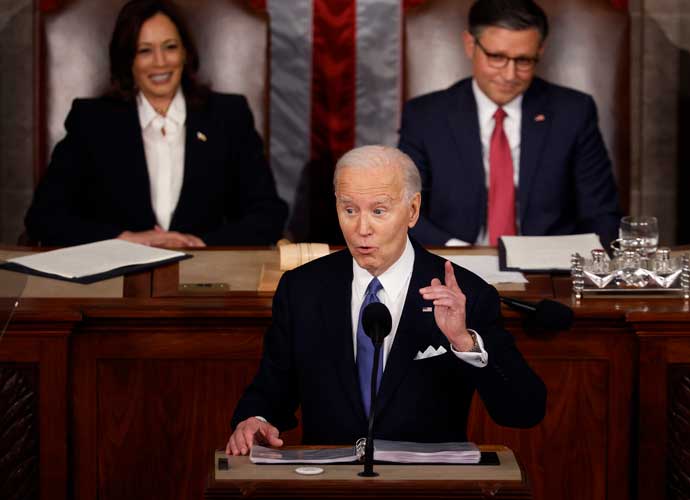Esai Morales On 'Caprica'
Esai Morales plays an attorney with the ties to the underworld on SyFy’s cult hit Caprica, the prequel to Battlestar Galactica. “What I realized about this is that the show is very analogous to our lifestyle here [on Earth],” he told Uinterview in an exclusive interview. “So I didn’t have to go out and study life in other worlds as much as its home as far as the arc is concerned.”
Born and raised in Brooklyn, NY., Morales began early with his dreams of becoming an actor, enrolling in the School of Performing Arts in Manhattan. He began his career by performing in theater first and eventually made his debut in the 1983 film Bad Boys. Describing himself as an “actorvist,” Morales has starred in many movies that have been reflections of his own social and politics casuse, including movies such as The Disappearance of Garcia Lorca based on the Spanish Civil War and The Burning Season, based on the fight to protect rainforests.
Morales finds himself connecting bits of Caprica with what he sees in thw orld today. “I think what I’ve always felt about our media and our technology – it outpaces our spirituality, our connectivity,” he told Uinterview. “We’re being outpaced.”
Well, it’s interesting because I’d heard about it. When I mentioned that there was a prequel to Battlestar – a quarter to half the people I told, their ears were perked up. 'That’s a big show, you know.' And I thought, especially, when we went to [the comic convention] Comic Con, we were one of the biggest halls there with like 5,000 people, and it was filled up for the presentation of Caprica. The attention put on it was pretty heavy.
I wasn’t aware of it no, but I knew about the 70s show. And then I asked if I should go out and study it, and they said, 'No, no, no, it’s not necessary.' Subsequently, I’ve become much more familiar with it. But if you give me too much information, it loses its mystery.
Every role you do you approach in your own way and different roles require different preparation. What I realized about this is that the show’s very analogous to our lifestyle here, so I didn’t have to go out and study life in other worlds as much as it’s home as far as the arc is concerned. So emotionally every character I play, I’m doing parts of myself. Which parts precisely depend on the requirements of the role. I don’t really know how to answer that without giving too much away.
I know, I know. I have to be careful now. Because of the fervid nature of the fans, the avid nature, I have to be very careful of what I say. Choose my words carefully.
I think what I’ve always felt about our media and our technology – it outpaces our spirituality, our connectivity. We’re being outpaced. It’s like giving a loaded gun to a child who at five years old, you may or may not know what they have or how permanent the damage they can cause can be. I don’t want to explain too much of it, but I see this as a way to look at ourselves and what makes us human. Why do we get up? Why do we love? I have so many different directions I could go in my head, but to answer your question, I think it’s a perfect mirror of how, if we’re not careful, the ghost could be destroyed by the machine.
It’s just that things are not as they seem, in the real world and on the show. I don’t think the show can afford to mirror the real world exactly, I think it does it in broad strokes. It gets quite detailed for a weekly television show. It’s quite an undertaking, but if it gets too deep we’ll lose some of the audience. We have to deal with these on an unemotional level because the great shows tell these stories on a gut level and make us identify in these characters and beware in our lives. I don’t even think we have to try. If you watch it and you connect with it, then it resonates. If you stick with the show, it will stick with you.
You have to give it a chance. I do believe that the first act of what we’ve done with the cast and the crew as writers and people who are behind the scenes they were literally finding themselves. And by the second half, it comes together. The show is finding itself through characters living and eventually making adjustments to those things and that takes the season to happen.
Our director, what he does is, he’ll let you bring your best shot to the table and he’ll go, “That stinks,” and it makes you find things that you weren’t aware of and that’s what I think he captures – great performances. You don’t plan for that. The general feeling is that we really love our jobs, and we want to make special moments happen.
I’m done completely. I think the show is wrapped shooting. We’re in the post-production process, just have to do some ADR, which is looping, some additional dialogue. I’ll do that tomorrow and in the remainder of the episodes and hope the audience enjoys this ride as much as we did making it.
That’s beautiful. We have a Department of War, we have a Department of Defense, of so-called Defense. How about a Department dedicated to conflict resolution and communication efficiency? That instead of focusing so much on capitalizing mankind’s inhumanity, which is what I think the present Powers That Be do.
RELATED ARTICLES
Get the most-revealing celebrity conversations with the uInterview podcast!








Leave a comment